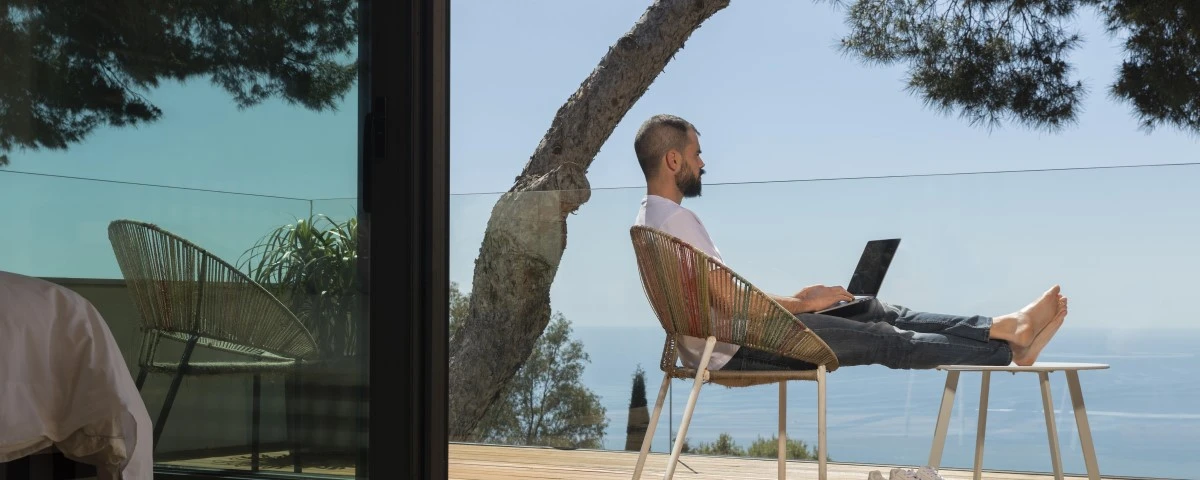
5 Ways You Can Improve Your Mental Health
16 May 2023
What To Do When Your Contract Ends Unexpectedly
26 October 2023Since the Covid-19 pandemic, remote working has become a part of life for many more people. Hybrid approaches – one or two days a week of remote work and in-person office time – have also become increasingly popular.
However, for many contractors and freelancers, it’s likely to be a five-day-a-week arrangement. This flexibility means that independent workers are more able to mix work and travel – something that became very popular post-pandemic. People who work this way are sometimes called ‘digital nomads’.
In this article, we’ll explain what digital nomads actually do, and what you need to consider if you’re interested in going nomadic as a freelancer or contractor.
What is a digital nomad?
A digital nomad can work remotely full-time and mainly performs their day-to-day role digitally, whether as a designer, developer, copywriter, consultant or otherwise.
While some permanent employees may be able to negotiate an arrangement with their employers – working from another country for a short time while on a family holiday, for example – contractors and freelancers have much more freedom.
What do I need to think about if I want to become a digital nomad?
There are a few things you’ll need to consider before you can take flight and become a digital nomad:
Visa requirements
There may be visa requirements for the country (or countries) you’re planning to visit and any associated fees.
Generally, you’ll need a visa to work while visiting another country. As a result, it’s difficult to offer general advice because the requirements will differ from country to country. But you can learn more on gov.uk about each country’s requirements.
There might also be regulatory concerns around certain professions. So, you’ll have to investigate depending on where you’re considering going. Again, gov.uk has specific travel advice for each country.
To summarise, do your homework on visas before you hit the road.
Tax and accounting in different jurisdictions
As well as the entry requirements, each country will have its own tax jurisdiction. This is complicated, with lots of grey areas to navigate.
However, in response to the popularity of this post-pandemic lifestyle, many countries have introduced visas specifically to attract digital nomads, including Spain, Portugal, Iceland and Estonia.
Each country has different rules, such as minimum annual earnings and maximum length of stay; some visas are valid for one year only, while others can be extended on application.
Travel costs
It’s also worth considering the additional travel costs you might incur due to living and working this way.
Travel insurance may be necessary and additional policies to cover your work equipment from theft or damage.
Also, consider opening a new bank account with low or no transaction fees abroad.
There are accommodation costs, too. Many digital nomads who own property rent it out, to contribute or even cover the cost of accommodation while away.
Maintaining your UK base
Suppose you’ve been contracting or freelancing in the UK for some time. In that case, you’re likely to have existing clients with whom you may want to continue working.
As always, good communication is vital. Let your clients know about your plans, particularly considering any differences in local time zones that might affect working hours or your availability.
The most important thing for a client is that they continue to receive the same level of service. So it’s worth thinking about how you sell this to them to address any concerns they may have.
Finding additional information
Fortunately, plenty of online resources are available to help you navigate this increasingly popular way of living and working, including websites dedicated to the digital nomad lifestyle. Nomad List and Digital Nomad World are both worth checking out.
These sites can connect you with professional tax and immigration advisors, able to help you to understand the entry requirements and tax regimes of the country you’re planning to visit and work from.
They can also help you to understand the culture of some destinations, with user reviews and advice.

